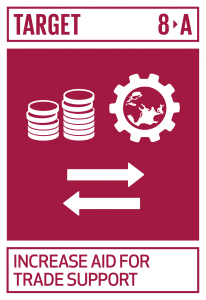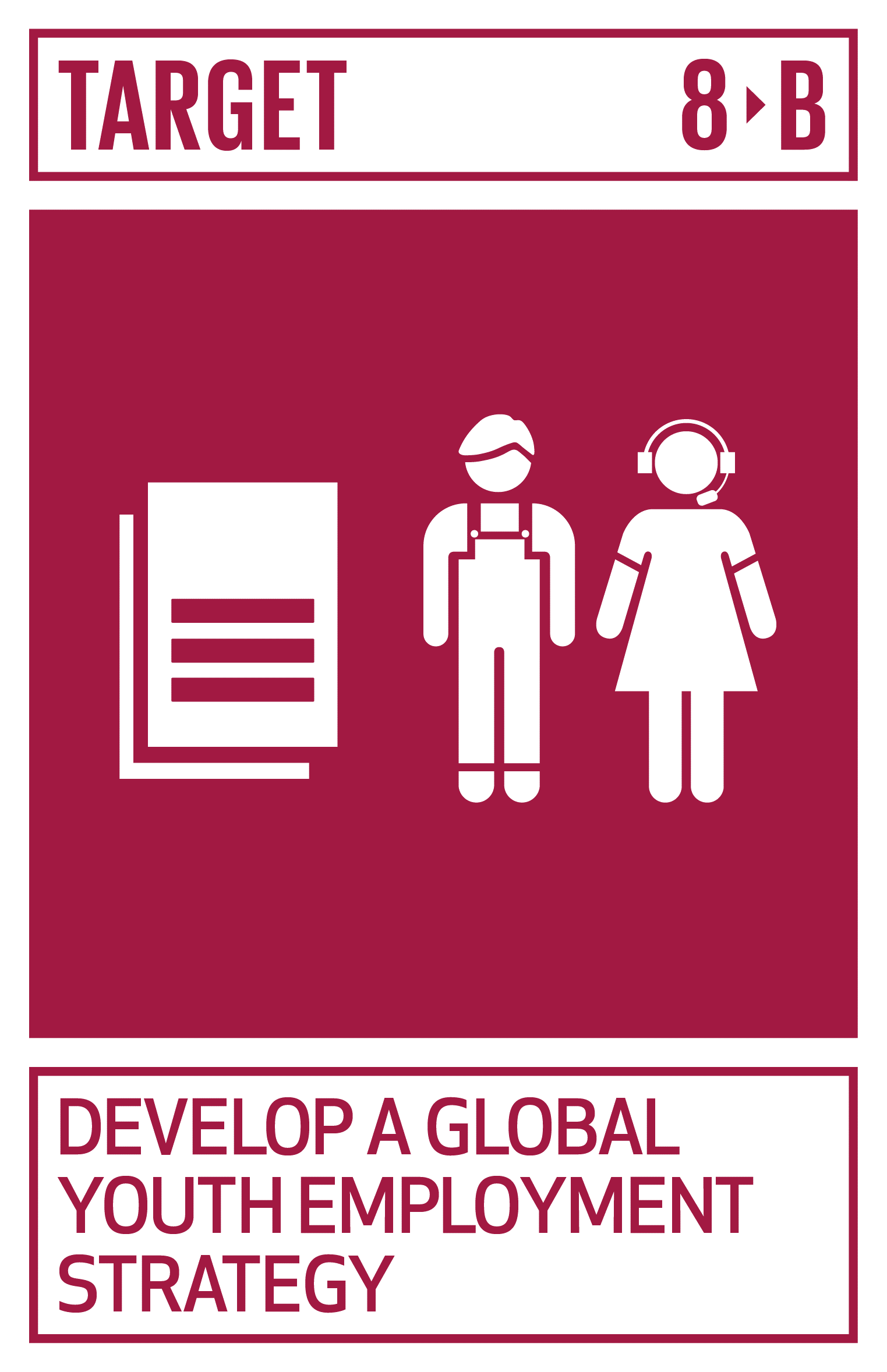
Promote inclusive and sustainable economic growth, employment and decent work for all.

The natural environment plays a vital role in sustaining economic activity, hence environmental preservation is critical for long-term economic prosperity. It makes a direct contribution by providing resources and raw materials such as water, timber, and minerals, which are needed as inputs for the production of goods and services; and it makes an indirect contribution through ecosystem services such as carbon sequestration, water purification, flood risk management, and nutrient cycling.
'Natural' disasters have a direct impact on economic activity, resulting in significant economic losses and putting many households into poverty. Ecosystem preservation and climate change mitigation can thus have a significant positive impact on a country's economic and employment sectors.
Sustained and inclusive economic growth is a necessity for long-term development, which can help people all across the world live better lives. Economic growth can result in more and better job possibilities for everyone, as well as increased economic security. Furthermore, rapid development, particularly among the least developed and developing countries, can help them close the wage gap with industrialised countries, reducing the gap between rich and poor.
TARGETS:

8.1 Sustain per capita economic growth in accordance with national circumstances and, in particular, at least 7 per cent gross domestic product growth per annum in the least developed countries.

8.2 Achieve higher levels of economic productivity through diversification, technological upgrading and innovation, including through a focus on high-value added and labour-intensive sectors..

8.3 Promote development-oriented policies that support productive activities, decent job creation, entrepreneurship, creativity and innovation, and encourage the formalization and growth of micro-, small- and medium-sized enterprises, including through access to financial services

8.4 Improve progressively, through 2030, global resource efficiency in consumption and production and endeavour to decouple economic growth from environmental degradation, in accordance with the 10-year framework of programmes on sustainable consumption and production, with developed countries taking the lead.

8.5 By 2030, achieve full and productive employment and decent work for all women and men, including for young people and persons with disabilities, and equal pay for work of equal value

8.6 By 2020, substantially reduce the proportion of youth not in employment, education or training

8.7 Take immediate and effective measures to eradicate forced labour, end modern slavery and human trafficking and secure the prohibition and elimination of the worst forms of child labour, including recruitment and use of child soldiers, and by 2025 end child labour in all its forms

8.8 Protect labour rights and promote safe and secure working environments for all workers, including migrant workers, in particular women migrants, and those in precarious employment

8.9 By 2030, devise and implement policies to promote sustainable tourism that creates jobs and promotes local culture and products

8.10 Strengthen the capacity of domestic financial institutions to encourage and expand access to banking, insurance and financial services for all9

8.A Increase Aid for Trade support for developing countries, in particular least developed countries, including through the Enhanced Integrated Framework for Trade-Related Technical Assistance to Least Developed Countries

8.B By 2020, develop and operationalize a global strategy for youth employment and implement the Global Jobs Pact of the International Labour Organization